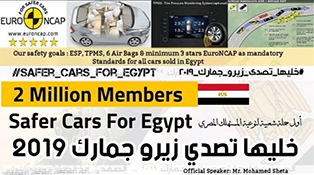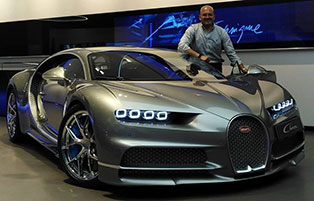FIA
Road Safety in Egypt: How can we solve our traffic and accident problems? The most comprehensive analysis and effective solutions!
Mohamed Sheta is not only a recognized and well-known jury-member in several international renowned automotive awards in Europe, the USA and the Middle East but he is also a well-known and dedicated Road Safety activist.
His almost 20-years-long experience in the automotive and motorsport field gives him all the necessary experience and insight to be able to contribute productively and efficiently to the increase of media and public awareness about the much-needed road safety on Egyptian and Middle Eastern roads.
That is one of the reasons why Farida Helmy from Egypt Today Magazine, one of the leading English-language magazines in Egypt and the Middle East, conducted this interview with Sheta in order to know his opinion and thoughts about this very vital and important topic.
Parts of this interview have already been published in the March 2012 and June 2012 of Egypt Today Magazine. Due to the well-known space-limits in print magazine, we decided to publish the complete interview here on our website in order to offer our readers one of the most comprehensive and truth-unveiling road safety interviews publis
The pictures of this interview will be updated weekly with new pictures of serious accident and hazardous behavior in order to raise more awareness about Road Safety and Safe Driving.
The Interview:
1.) What got you interested in the cause of road safety? For how long have you been an advocate for the cause?
Like most of the small kids, I started getting �involved’ with cars in the very tender age of three years, where I started collecting matchbox and hot wheels cars. When I was six-years old, my late grand-father started teaching me how to drive cars and tractors at our farm, where I had lots of space on that private property without endangering anybody.
My first �driving-lessons’ of course included some bended doors and some scratches, among others on the well-known Peugeot 504 and the small Kubota tractor.
When I was in 11th grad at the German School in Dokki I started getting involved with professional motor-sport, when I started working in the Egyptian organization team of the Pharaos Rally at that time. And that was my first �professional’ involvement with the automotive and motorsport field, almost 20 years ago back in 1992. After finishing my Abitur (German Highschool diploma) at the DEO in Cairo, I went to study Business Management in Germany, where I got in contact with the �real’ automotive world.
During my studies I started testing and reviewing cars and I started participating in different motor-sport and racing series such as the Drift Challenge or the New Beetle Cup. When I started testing and reviewing cars I noticed the importance and effect of the active and passive safety features offered and invented by German companies such as Bosch, BMW, Mercedes Benz or Volkswagen.
And here is where my interest and awareness for road safety started. I saw in Germany what the government, the car companies, the feeding and suppliers industry, the automobile clubs and the media were doing and how they were all cooperating with each other in order to reduce the road death numbers on German roads. And this was the point where I said to myself: I need to do something to reduce the road deaths numbers in Egypt and the Middle East!
I started taking Safety Driving Training with most of the automotive companies in Germany and Europe, in order to get a better understanding on how to react when facing a critical situation while driving on the road, and in order to be able to avoid obstacle on medium or high speed. Another reason for participating in those Safety Driving Trainings was to able to offer such important driving trainings at a later stage in Egypt and the Middle East.
So, you could say I have been an advocate for this cause for almost 15 years.
2) As the editor and publisher of Auto Arabia Media Group, what sort of work do you do concerning road safety?
Well, we at Auto Arabia do many things in this regard. First of all, in all our articles on autoarabia.org and our other media outlets we keep a very strong focus on any new technology regarding the active and passive features in the passenger and light commercial vehicles, such as the Electronic Stability Program (ESP), the Anti-Blocking System (ABS), the airbags, the Lane-Assist System, the Emergency Braking System, or the Active-Brake Assist System in the trucks and buses. If any car does not offer the minimum of active and passive safety features, then we recommend our readers not to buy this model.
We always give lots of space for such new technologies and always keep on highlighting to our readers, viewers and listeners the importance of purchasing only new or used cars equipped with such life-saving safety systems.
In most of my TV and radio appearances I always explain how the correct driving and seating position would be in order to be able to maneuver the car correctly when facing an extreme situation or trying to avoid an obstacle.
I also get invited to many local and international conferences, where I get the chance to talk about the situation of the automotive industry in general and the Road Safety situation in specific. I then elaborate about the situation in Egypt and the Middle East, and how we can improve it by learning from what the other advanced Western countries have reached in that regard.
Through �Auto Arabia Events’ we also organize theoretical and practical Safety Driving Training for multinational and Egyptian companies as well as for ministries and embassies, who are looking after the safety of their employees and drivers. We also organize events where we educate young drivers about safe-driving methods and highlight the risks of driving when under the influence of alcohol or drugs
Through Auto Arabia Consulting, which is part of the Auto Arabia Media Group, we consult and give advice to local and international companies who would like to improve and upgrade their car fleet to include safer cars and more practical cars for their needs. We also consult automotive and automotive-related companies how to get actively involved in Road Safety campaign in order to do something effective for their corporate social responsibility and image
3.) At your post as a presenter at Radio Masr 88.7, what sort of things do you discuss and inform the public about concerning road safety?
Every Tuesday during the radio prime-time from 4-7pm, I have the chance to discuss on Egypt’s largest radio network, Radio Masr 88.7, the latest news from the automotive sector.
This includes the latest car recalls from the automotive mother-companies due to technical failure or manufacturing defect, the latest news on active and passive safety features, and of course I talk about the pros and contras of any new car model offered in Egypt.
On a regular basis we give tips for the drivers how to behave and what to do during critical weather conditions, such as fog or rain. We also discuss the driving behavior of microbus and truck drivers, which in many cases lead to horrible accidents. We also had special episodes about the latest development in the � new trailer-law’ issue, which, according to many German truck and road safety experts, will lead to an increase and not decrease of truck accidents in Egypt.
As a passionate motorbike rider myself, we regularly discuss motorcycle issues and give tips on how to drive your motorbike safely and how important the helmet and a full protection gear is, even when driving downtown on low-speed or even when driving a delivery-Vespa.
We also discuss, and mainly criticize, the role of the automotive and automotive-related industry and official authorities such as the different ministries in promoting �road safety’ and �safe cars’ effectively and for the benefit of the Egyptian consumer instead of for the benefit of the automotive companies themselves.
But the most important part of the show are the phone-calls we receive from our listeners, which during the prime-time from 4-7pm count between 6-7 million listeners every week. We even receive calls from outside Egypt as we have an online live stream available on our website autoarabia.org .
They can ask us any questions about any car model they are planning to buy, and we tell them if this car model is safe or not. In addition to that they can call us complaint to us live-on-air about any technical problems they face with their car or any customer service problems they face with their service center. Usually the service center manager calls us during the same show in order to solve the customer’s problem and safe his own reputation.
As for the purchase recommendation, I always suggest cars with the life-saving Electronic Stability Program ESP, at least ABS and at least 4 airbags. Cars with no headrests in the back, like in the Chevrolet Spark, the Hyundai i10, the KIA Picanto, the Nissan Urvan micro-bus, etc. should be banned by the government from our roads in Egypt! And I strongly recommend the Egyptian consumer not to buy such cars. If the car company does not respect your, then they are not worth your money!
Over-priced cars with no active and passive safety features are also a topic we discuss regularly, especially since most of the local dealers and importers in Egypt ask their mother-companies to take out such important safety features in order to increase their already huge profit margin.
A very good (or bad) example is the Chevrolet Spark, which is offered in Germany with ESP, ABS and 6 airbags while in Egypt the Chevrolet Spark has no ESP, no ABS, no airbags and not even headrests in the back-seats, but at the same time costs the same or even more than the Spark in Germany. I have to add here that most of the other Spark-competitors in the market, such as the Hyundai i10, the KIA Picanto, the Speranza A113, the Suzuki Maruti and the FIAT Punto Classic have the same insufficient safety standards, but this is surely no excuse.
On the contrary: I demand that the Egyptian government starts implementing within the next 6 months the same standard requirements for active and passive safety features like in the European Union, for both imported and locally assembled passenger cars, light commercial vehicles and heavy trucks, because I think the Egyptian consumer has the right to drive safe and modern cars just like the consumer in Europe.
In addition to that I see no reason why to wait until 2019 for the customs and duties to reach 0% on imported cars from the European Union. I demand that the customs should be reduced to 0% before the end of 2012. By allowing the Egyptians to purchase modern and safe cars with the same price like in Europe, we will reduce the numbers of accidents significantly.
4). What do you think is the problem with the state of road safety in egypt? is it getting better or worse?
The state of �road safety’ in Egypt is definitely getting worse as I see no significant reduction in the numbers of crashes and road deaths.
On the contrary, you see lots of indications that �road safety’ in Egypt is going into the wrong direction.
After the lack of security since 24th of January 2011, you see hundreds or maybe even thousands of cheap Chinese motorcycles filling and racing through the streets of Egypt, with at least 3 or people on the tiny low-quality motorcycle and nobody wearing a helmet. Most of them even ride the motorcycle with the typical Egyptian flip-flops, which are extremely dangerous as they give you no grip or stability whatsoever when you need to maneuver or stabilize your motorcycle with your feet. So, we have an issue with the motorcycles.
We also have an issue with the passenger cars, where many drivers have no respect for the traffic rules anymore. Same applies even more for the microbus and truck drivers, where we see everyday severe violation of traffic laws and rules by some ruthless and criminal drivers. I have seen myself many truck driver ignoring and almost hitting police-men trying to stop them from entering the Mehwar road to 6th Of October City, where trucks are not allowed drive through.
In addition to that there are still no Roadworthiness-Test applied in Egypt, like we have them in all developed countries, and even in some Middle Eastern countries like the UAE and Lebanon. Even Turkey has been applying roadworthiness tests for some years now. This means cars and trucks are buses are getting older and older, with no official authority inspecting them and checking if they are still safe enough to move on public roads or transport goods and people. This will lead inevitably to more accidents and road deaths every single year.
Another reason for rising crash-numbers and truck accidents is the law, which demands the 50-60 thousand truck owners in Egypt to modify their trailers into so-called semi-trailer. So instead of having a normal truck with a normal trailer, every truck owner must no modify his truck into a so-called tractor which would then pull this new semi-trailer. I consider this law totally useless and contra-productive. Changing the steel structure of such trucks and trailer will only lead to a weakening of the structure, and therefore more accidents.
The main reasons for truck accidents are not the trailer, but the use of worn-out tires, malfunctioning brakes and suspension of the trucks and last but not least the drivers mistakes, cause either through inexperience, carelessness, inattention, unthoughtfulness, over-estimation of his driving skills and endurance or simply through drug or alcohol abuse.
If we take into consideration that such a conversion from trailer to semi-trailer and from truck to tractor would cost around 200.000 LE per vehicle, then we can easily see that only 4-5 conversion companies in Egypt would benefit from such a law. If we calculate 200.000 LE times 50.000 trucks, then we are talking about a 10.000.000.000 LE useless �business deal’, which they call in Egypt a �Sabuba’ ! No wonder those conversion companies had a very strong interest and very strong lobby speaking on their behalf in order to get the old parliament’s approval for this 10 Billion LE �deal’, eh.. I mean �law’.
Furthermore there are no rules and laws to prohibit the import of junk-trucks from Europe, and especially the UK, which are not allowed to drive on European roads anymore and which have usually between 600.000 to 1.000.000 km (!) on their clock. Instead of being recycled at the scrap-yards in the EU, those trucks are imported by some unscrupulous and immoral car dealers, then pimped up and modified to be sold as a �normal’ used trucks. And the result is usually horrendous truck accidents with tens of innocent Egyptians deaths.
Another main reason for the increase of crashes is the lack of maintaining the roads in Egypt, in addition to the lack of modifying the �old’ roads into modern and �forgiving’ roads. In the Road Safety field we differ between �forgiving’ and �non-forgiving’ roads, which means that on some roads the road barrier could save you when you hit it, in the other case the structure and design of the road-barrier could kill you or hurt you severely. Unfortunately most of the roads in Egypt are non-forgiving roads, even the relatively new and �modern’ Mehwar road used by thousands every day, is a non-forgiving road.
The fact that almost anyone can still easily do a driving license with any sophisticated theoretical or practical test, will surely not contribute to a better road safety statistic in Egypt.
If we would have a functioning and professional car insurance system like in Europe, then this could have had a very positive impact on the numbers of crashes and road fatalities on Egyptian roads.
We need to have a completely renewed Traffic Law in Egypt, taking into consideration all the new obstacles and challenges we face on the Egyptian roads, such as the thousands of Tuk-Tuks, the thousands of old trucks, the thousands of ruthless microbus drivers, the increasing numbers of teenagers driving under the influence of drugs and alcohol and many more.
Last but not least, all of the previously-mentioned will not lead to any improvement in our Road Safety statistics if we have no effective, fair and fearless law-enforcement with a Zero-Tolerance policy like in many countries. But most important: the law has to be applied on every single citizen, from the very young deliver-driver up till the very old police general or even minister.
5.) What are the main issues that need to be addressed to reduce the fatalities and injuries of road safety?
First of all, we need to launch a comprehensive public and media awareness campaign, covering all governorates of Egypt and targeting all different road users.
We need a dedicated campaign for the micro-bus and taxi drivers, we need a campaign for the truck and bus drivers, we need a campaign for the motorcycles and Tuk-Tuk drivers, a campaign for the passenger car drivers and last but not least a campaign for the pedestrians and the remaining road users such as donkey-riders and horse-carriages in some parts of Egypt.
We need to have dedicated awareness campaigns targeting the different group ages, as the risk of crashes varies dramatically between the different ages and genders. Germany and the European Union have been very successful with such dedicated campaigns as well as the �shock-campaigns’, which I strongly recommend to implement in Egypt as well.
We need to educate the Egyptian road user of the importance of purchasing cars, microbuses, trucks, buses and motorcycles with modern and up-to-date active and safety passive features for his own safety, the safety of his family and the other road users.
We then have to create smart and creative awareness campaigns with the goal of �convincing’ the road user that he is obeying to the traffic rules and law for his own and his family’s safety, and not for fearing a ticket or fine from the police office. We simply need to change the attitude of the Egyptians regarding Road Safety.
6.) Who is to blame? The government? The public? THE MEDIA? THE NGOs? Everyone?
Unfortunately everyone is to blame, including the government, the public, the private sector, the NGOs, the automotive and automotive-related companies, the Automobile Club, the Motorsport Federation, and last but not least both the specialized as well as the general-interest media.
The Egyptian government has been doing a very average job, with a tendency to �poor’. As we all surely have noticed, the Egyptian government had been, and after 25th of January 2011 still is quite overstrained with this very sophisticated and wide-reaching road safety issue.
The road safety issue is a very complex issue, which needs a very close cooperation between several ministries within the government, namely the Ministry of Industry and its Egyptian Organization for Standardization E.O.S., the Ministry of Interior, the Ministry of Health, the Ministry of Tourism and last but not least the Ministry of Finance.
In my opinion the Ministry of Industry and its Egyptian Organization for Standardization E.O.S., headed by the very competent Dr. Hani Barakat, should play the main role in improving the Road Safety statistic in Egypt. They should be in charge of implementing the Roadworthiness-Test for all motorized vehicles in Egypt, in close cooperation with the private sector and the renowned international testing facilities, such as the German TUV.
They should establish and manage the testing facilities allover Egypt and make sure that no corruption or bribery would ever find its way into manipulating the test-results.
On the other hand the Ministry of Interior and its Traffic Department should make sure through daily check-points that every car, motorcycle, microbus, taxi, truck and bus using any public road has successfully passed this roadworthiness test and has a valid roadworthiness certificate either through a sticker on the license plate or through a paper certificate attached to the car registration license.
The Traffic Department must also increase its presence on the roads and use Intelligent Traffic System (ITS) in order to reduce the numbers of violation, and thus the number of crashes on Egyptian roads. One representative of the Ministry of Interior once said in a road safety conference at the UN WHO headquarter: The goal of our ministry is to keep the number of road deaths and accidents stable!!!!! This is so wrong! We need to reduce the sky-high numbers and not keep them stable! In 2010 Germany was able to reach the lowest numbers of accidents and road deaths in 60 years!
The Ministry of Finance and its Customs Authority must, and with immediate effect, exclude any active and passive safety features, such as ESP, ABS, airbags, Lane Assist systems, etc. from any custom duties. They should even give custom duty discounts on vehicles equipped with such life-saving systems. We should reward and not punish the car companies and therefore the consumer for buying a car with such important safety features.
The Ministry of Tourism should do additional test for tourism bus drivers and make sure that each bus always has two drivers onboard when transporting tourist through Egypt. Each drivers should not drive more than 2 hours without exchanging with the other driver. Each bus should have an installed �alcohol and drug tester’ which would not allow the driver to turn on the bus if he was under the influence of alcohol or drugs. Same of course should be applied for trucks as well. In addition to that the Ministry of Tourism should work very closely with the EOS and Customs Authority in order to prohibit low-quality and unsafe buses from China and anywhere else from entering Egypt.
As for the automotive company, most of them are doing nothing at all in terms of improving the road safety conditions in Egypt.
A few days ago I clicked the Facebook group of General Motors Egypt and their partner and importer in Egypt, Mansour Chevrolet. They created a group called �Chevrolet Egypt’ on Facebook, where they keep giving safe-driving tips, such us �always use your seat-belt’, etc. This is very commendable. But at the same time they offer cars like the Chevrolet Spark without any head-rests on the back-seats! This means any impact with over 40 km/h from the back could break the neck of anybody sitting in the back! I consider this very ironic and not up to the moral standards of any international car manufacturer with such an history and heritage. Especially since they would never dare to offer such a car with such poor technical and safety specs in their home-country or anywhere else in the Middle East or Europe.
But General Motors is no exception. Many other well-known Korean, Japanese, French and American car manufacturers are sending their cars to Egypt after taking out the most important safety features such as ESP, ABS, airbags and headrests on the back-seats. Why? Because their Egyptian importer asked them to do so in order to increase his profit margin and because there are no Egyptian rules to prohibit the import of such cars with no active or passive safety features.
One example is Toyota Egypt which is planning to offer its soon to-be-locally-assembled Toyota Fortuner large-size SUV with old-technology drumb-brakes, which are not even used anymore in mini-cars or compact cars in Europe. Of course the car has no ESP either and Toyota Egypt then also has the nerves to sell the car for an expected 300.000 LE price-tag, while the same model costs only 100.000 Riyal (app. 160.000 LE) in Saudi Arabia.
Unfortunately I also miss the engagement of other automotive- or Formula One-related companies such as ExxonMobil, Red Bull, Bridgestone, Vodafone, Coca Cola and many others in improving the Road Safety conditions in Egypt. Especially since their mother-companies are doing a lot of road safety activities as part of their corporate social responsibility.
As for the media role, this is another main reason why we suffer from such high crash and road deaths numbers in Egypt.
Unfortunately we hardly have any specialized motoring journalist in Egypt. 99% of the automotive media in Egypt is doing nothing more than publishing pure automotive advertisements or paid editorials in the interest of the automotive companies, neglecting completely the interest of the reader and the Egyptian consumer.
Most of the writers at the daily newspapers or magazine have no technical or automotive background. In addition to that most of them do not even have a driving license or own a car and therefore cannot really understand or imagine the function and therefore the importance of active and passive safety features.
Most of the automotive writers in the local media also do not speak any foreign languages, and therefore have no access to the international researches and surveys or automotive information sites. Of course it then also very difficult for them to follow the speakers and road safety experts at any international road safety conference, when there is no translation. Not to mention that you will not find in the internet any Road Safety related content in Arabic language.
Unfortunately we do not have any professional or credible automotive media or auto shows on any state-owned or private TV channel. Two of the existing auto shows have some segments in their shows which are usually sponsored by some car companies, where the service- or sales-managers appears in the show and keeps on telling the viewer how great their company is doing, while using wrong information about. Even when they talk about safety-relevant issues such as the tire-pressure or the engine-oil, both the presenter and the automotive-manger riskily give out wrong information to the viewer.
Additionally there has been no noticeable or effective road safety activity from the Egyptian Automobile and Touring Club or from the Egyptian Motorsport Federation so far. Also none of the race-organizers in Egypt has ever promoted any effective Road Safety campaigns or activities during his races. The least thing they should have done was to try to limit illegal street racing, and take them off the public streets on to the secured racing tracks.
And of course we have to blame the public too, as they do not pay much effort in order to improve their own safety and those of others, especially when it comes to road-rage and fights over who has priority at crossings or during the daily traffic jam circus.
7.) What sort of job do you think road safety ngo's, societies and activists are doing to deal with this issue?
Well, I do not want to sound too pessimistic like I sounded during the first part of the interview, but unfortunately I am not really happy nor convinced with how most of the NGOs have so far dealt with this issue in Egypt.
I have the feeling that some NGOs are just working in this field to collect some money and funding for their own benefit. I know about a NGO which collected 50.000 US Dollars just for producing a couple of thousand CDs with some pictures on them. I consider such activities a complete waste of money, from which only the managers or founders of the NGO benefit personally.
Other NGOs, you never hear anything about them or their activities, unless you are at a conference or workshop where its president only wants to hold the microphone or give interviews to the media and tell them �how great his NGO is and what kind of great activities they have done’.
I think there are too many NGOs trying to get a piece of the funding-�cake’. Most of the NGO are not up-to-date with the advanced road-safety technology and have no technical background or technical experts among them. Most of them are only active on Cairo or Alexandria, whereas a large number of accidents take place in the Nile Delta or on the Sinai.
I think we need to re-evaluate each and every NGO working in the Road Safety sector, in order to see which ones are doing something good for the society and which ones are doing something good only for their founders.
It does not make sense that we have ten or twenty NGOs doing the same job with ten or twenty supporters from the private sector. This would be a waste of effort and waste of money. We need to find synergies between the professional NGOs and start working on one big awareness campaign, in order to be find the best and most effective Road Safety solutions for Egypt.
8) Technically, what is the problem with our roads and vehicles?
Anywhere in the world there are three main sources for road crashes: The vehicle, the road and the driver.
My personal impression tells me that 95% of the Egyptian roads are neither safe nor �for-giving’ roads. In order to correct this situations I think we need to restructure the Ministry of Transportation as well as its
General Authority for Roads, Bridges & Land Transport, aka Garbelt. We need one official authority which would be in charge of ALL roads and highways in Egypt.
Then we need another cooperation with Germany or the EU, similar to the EU Twinning Program which just ended a few months ago, in order to re-organize and take our roads to a new level.
The same percentage would probably also apply to the technical condition of all cars, micro-buses and trucks moving on Egyptian roads, which means that almost 95% are not safe for their drivers and the other road users.
In addition to that, and as mentioned earlier, most of the cars on Egyptian roads do not have the minimum requirements of active and passive safety features, such as ESP, ABS, airbags, Lane Assist, Emergency City Braking system or Active Brake Assist.
Moreover we have a huge lack of profound driving skills among most our fellow-Egyptians, mainly due to the fact that we have no professional driving schools nor serious driving license tests. Not to mention the huge numbers of wonna-be Michael Schumachers and those who heavily over-estimate their driving skills and mistakenly think the Mehwar road or Marghany street is the Nuerburgring racing circuit.
9) Do you think enough work is being done to deal with the issue of road safety under the 'decade of action' and the RS10 project?
I think the �Decade of Action’ and the RS10 project are very important initiatives for the Road Safety situation in Egypt. Nevertheless I do not think that enough has been done in that respect, and I believe there is still huge potential for improvement and progress. I think we need to have more media activities and media campaign, as well as much more effective activities on the ground. Holding press conferences and workshops where it is always the same people meeting each other every time, should not be the main task of the Decade of Action and the RS10 Project.
10) What do you advise are the steps that need to be taken to lower the risks of road safety?
There are many short-, mid- and long-term steps on different levels that need to be done in order to improve the Road Safety situation in Egypt and lower the risk of getting injured or killed on Egyptian roads.
First of all the Egyptian government needs to have the courage and determination to announce a �master-plan’ for reducing the numbers of accidents and road deaths, keeping in mind solely the benefit of the Egyptian consumer and not the benefit of any other group of people, former government officials, ministries or companies.
This master-plan should be under the auspices and direct supervision of the Egyptian Prime Minister and not under any supervision of the existing ministries.
The master-plan should be funded and drafted in close cooperation with the European Union and Japan, which have already undertaken several steps in the previous years through the EU Twinning Program and the JAICA.
After that we need to get the six main ministries (Ministry of Industry and EOS, Ministry of Finance and Customs Authority, Ministry of Interior, Ministry of Health, Ministry of Tourism, Ministry of Transportion and Garbelt) to sit on one table and coordinate their demands, request and tasks in order to be able to harmonize and synchronize while moving all in one direction which is: Improve Road Safety in Egypt as drafted by the �master-plan’.
Parallel to the long-term master-plan we need to implement and execute the following short-term road safety-relevant measures as soon as possible:
- Set new active and passive safety features standard by the summer of 2012 for any imported or locally-assembled passenger cars, buses, micro-buses and trucks. Those standards should be the same like in the European Union, where ESP, ABS and airbags are standard requirements.
- Only allow cars to be sold in Egypt which achieve at least 3 points out of 5 in the EuroNCAP crash-test and which achieve a minimum of Euro3 in the EU-emission category. Within 3 years the emission-level should reach Euro5 and be synchronized with the European Union.
- Periodical roadworthiness tests for cars and motorcycles (every 12 months) as well as for buses, micro-buses and trucks (every 6 months), which should be implemented and executed through the Ministry of Industry and the EOS before the end of 2012.
- Introduce and implement new emission-laws for any imported and locally-assembled cars.
- Starting 2013 a new car-insurance system, similar to the one in Germany, should be implemented for all motorized vehicles and drivers in Egypt.
- Ministry of Finance and its Customs Authority should exempt any active or passive safety feature from any custom duties, and should grant any car equipped with such systems at least 50% discount or more. By the end of 2012 the government should consider reducing the custom duties on car to 0% instead of waiting till 2019, when according to the free trade agreement with the EU and product from the EU will be exempted from any custom duties.
- The Ministry of Tourism should ban immediately the use and import of any buses which are not allowed in the EU, especially the low-quality assembled locally or imported from China.
- Ministry of Industry: EOS
- The Ministry of Education should modify the educational school books and include road safety related topics, each one adapted to the different age group and school year.
- The Ministry of Health should start offering first-aid courses allover Egypt through its hospitals and medical centers.
- The Ministry of Interior should immediately implement new driving license tests for private driver, and commercial drivers. They must increase the drug and alcohol test inside and outside, especially on the high-way and country-roads. Most important: The need to make regular and daily check-point and check on the roadworthiness-test certificate issued by the EOS, which I mentioned earlier.
- The Ministry of Interior and Ministry of Transportation should increase drastically the use of permanent and mobile road-spikes on bridges, exits, U-Turn, main roads and any other roads and streets were drivers drive in the wrong direction as a short-cut. They should also use mobile road-spikes at check-point, when for example truck drivers refuse to stop.
- Every motorized vehicle must use the lights as soon as the Maghreb prayer is heard. Anybody not using the lights should pay 1000 pounds as an immediate fine.
- Pedestrians, sellers and beggars should not be allowed on bridges as they create most of the traffic by stopping micro-buses and other cars and thus increase the risk of possible crashes.
- Conduct immediate and daily tests on the weight, load and correct fixation of goods on the trucks. Overloaded trucks should pay a huge fine of at least 10.000 LE and not be allowed to continue the journey with the overloaded goods.
- I expect and hope to see a much better involvement and support from the private sector and business community in supporting road safety campaign as part of their CSR program, especially the oil companies, the car companies, the tire companies, the insurance companies, the telecommunication companies, the food & beverage companies, etc.
- Anybody watching DVDs or TV while driving should pay at least 10.000 LE. In addition to that his driving license and car should be impounded for at least 1 month.
- We need an International Road Safety Conference to be held in Egypt at least twice every year
- We also need a professional weekly auto show on one of the Egyptian TV channels, which would consider promoting road safety as its main target and keeps on repeating the easy but essential tips for safer driving, e.g. how to measure and set your tire pressure correctly and that you need to do that every two weeks.
At last, and before you buy any new car or motorcycle check out our website autoarabia.org and our Auto Arabia facebook group to see the latest EuroNCAP crash-test result of your new dream car or dream bike, and to discuss with our other group members which service centers offer a good service and which offer such a bad service, so bad that it could be hazardous for you and your family’s safety.
End
Interview conducted by Farida Helmy from Egypt Today Magazine.
For more information please contact us through roadsafety@autoarabia.org
Related articles:
#SaferCarsForEgypt
 Want to sell your used car or buy one? Then check out our new used car market section
here!
Want to sell your used car or buy one? Then check out our new used car market section
here!
 Looking for a good service center or aftersales customer service? Did you have any bad experience with your car dealer or service center? Then check our 'automotive evaluation charts'
here!
Looking for a good service center or aftersales customer service? Did you have any bad experience with your car dealer or service center? Then check our 'automotive evaluation charts'
here!
Is Egyptian car market corrupt or collapsing?

Is the Egyptian car market collapsing or is it just a corrupt and unprofessional car market?
This is surely one of the most asked questions these days. Everybody is asking ...
AutoArabia Consulting
Middle East Car of the Year
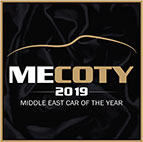
Read more
Crash Test Results

Subscribe



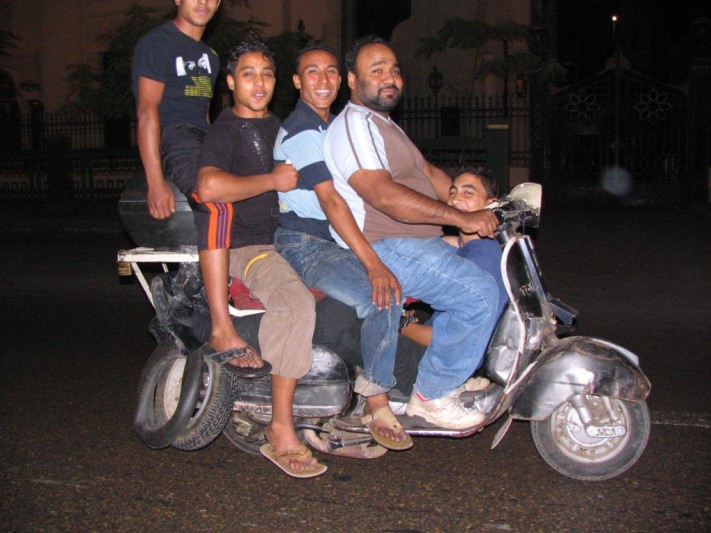
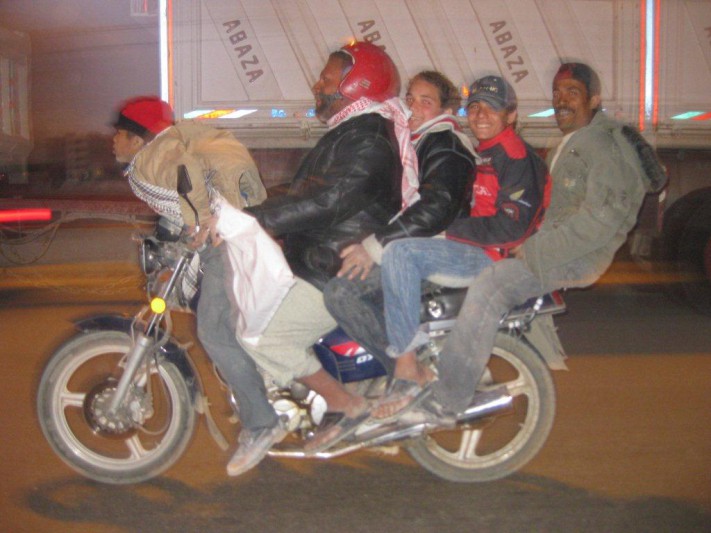
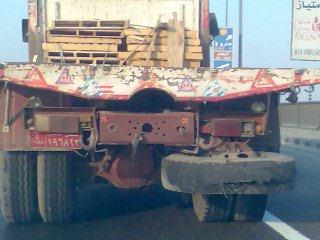
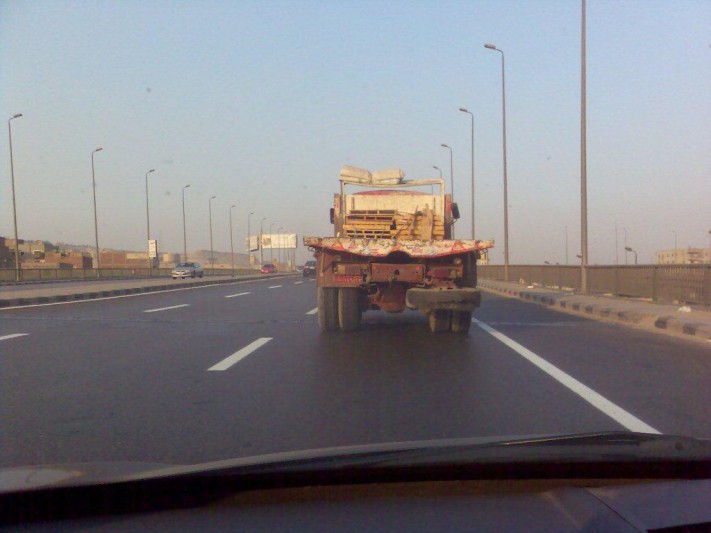
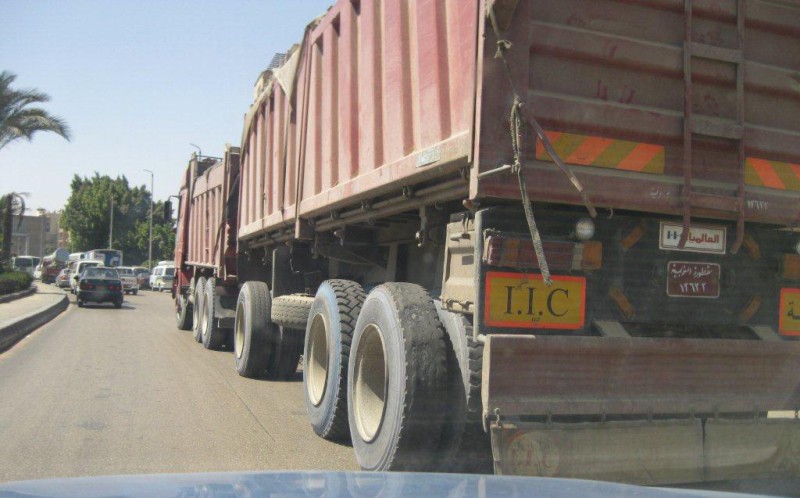
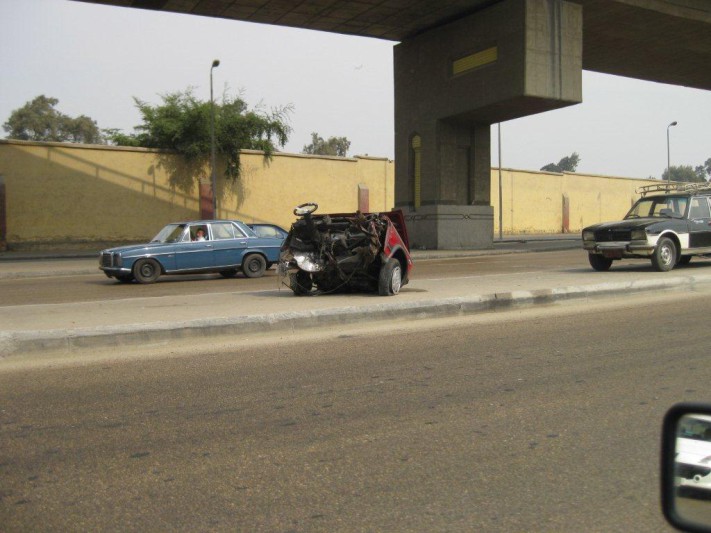
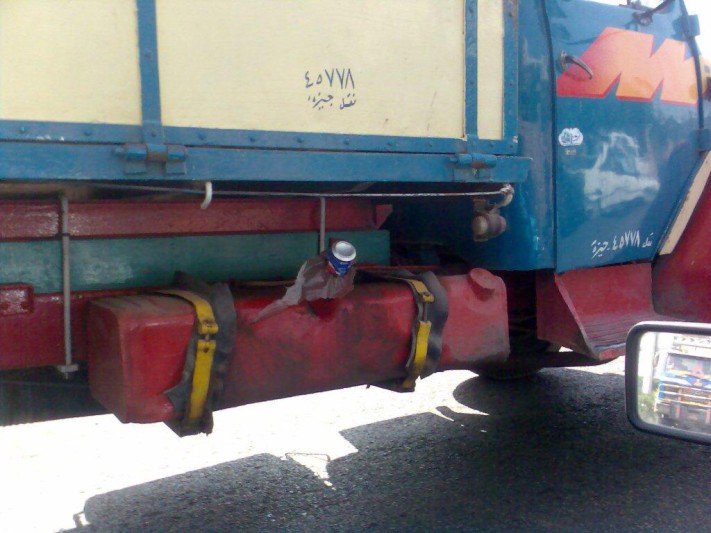
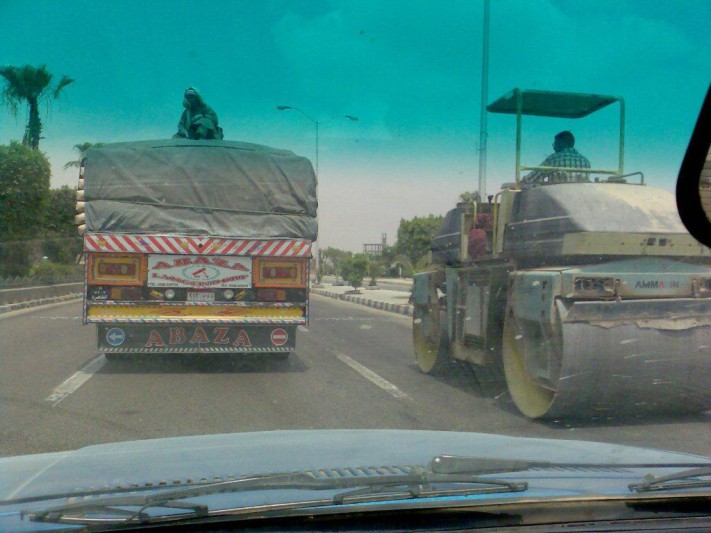
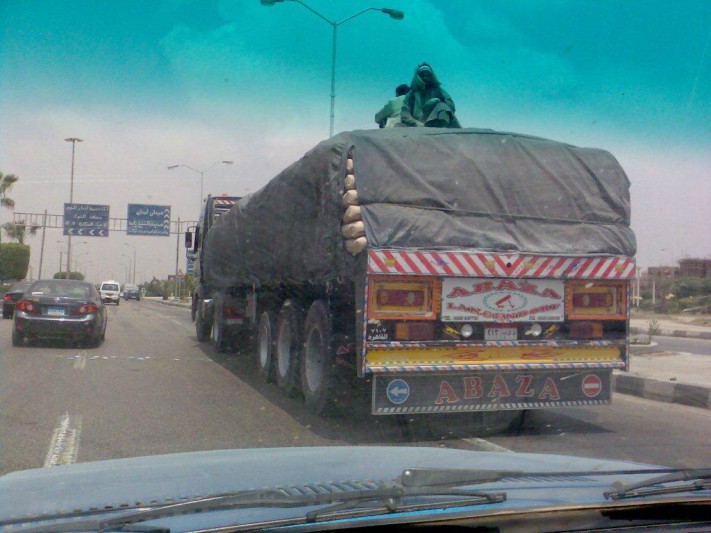
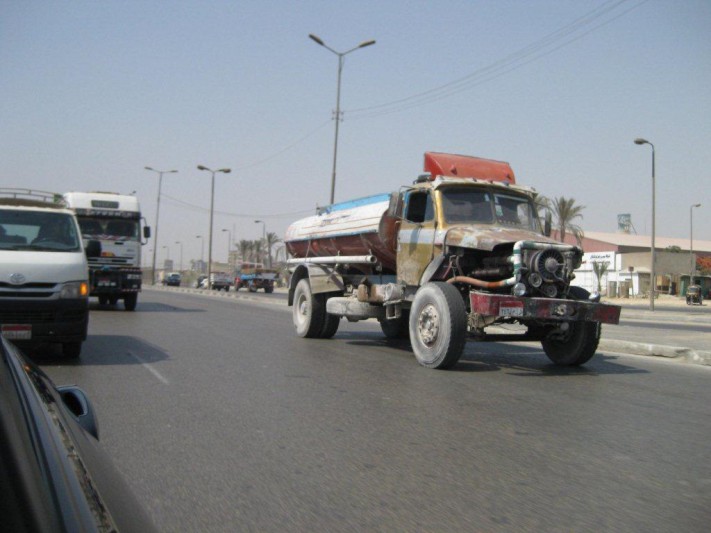
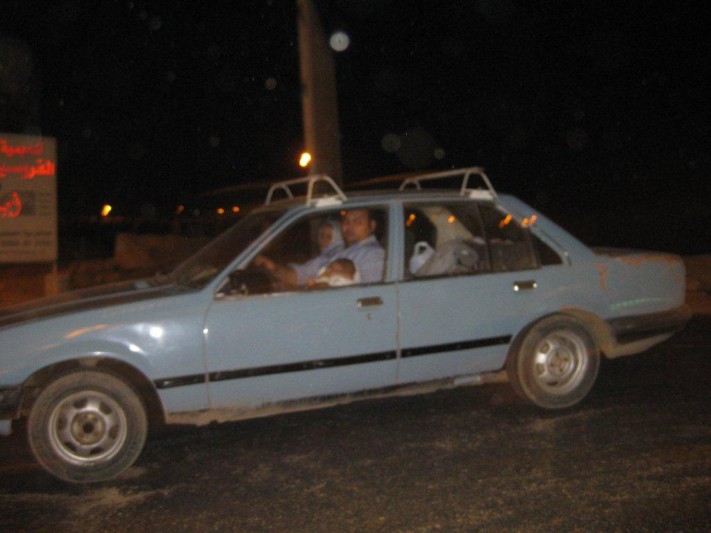
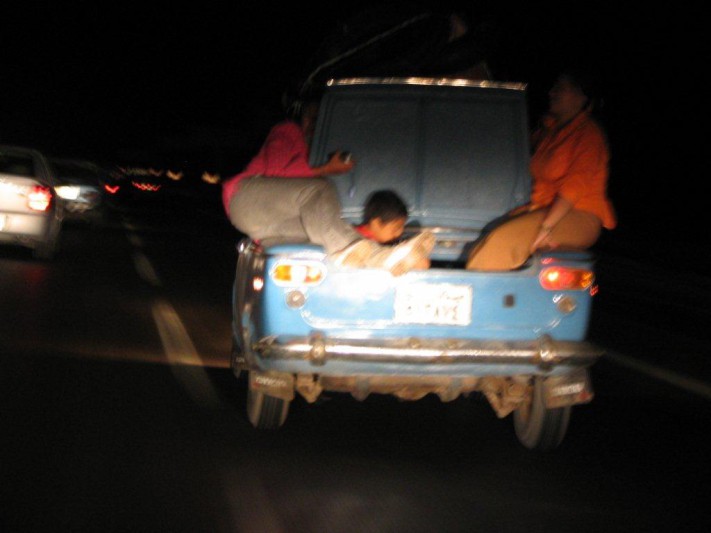
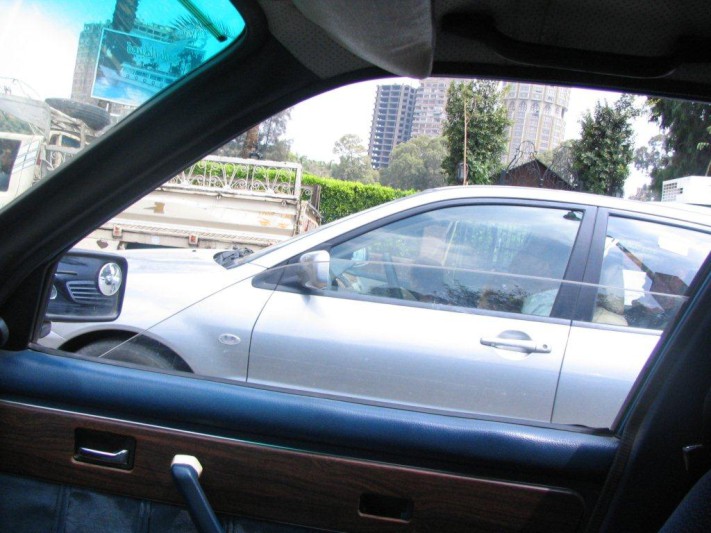
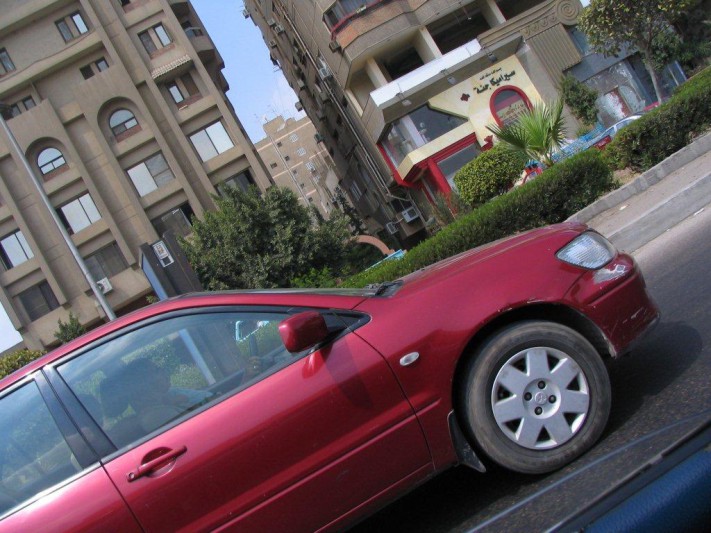
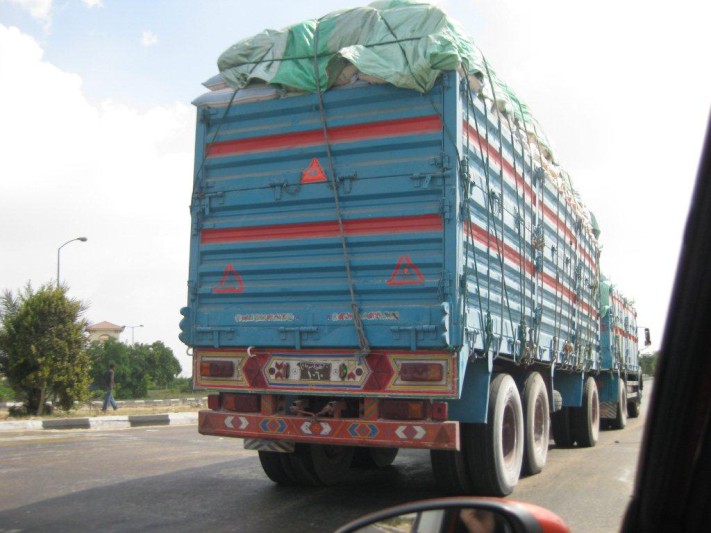
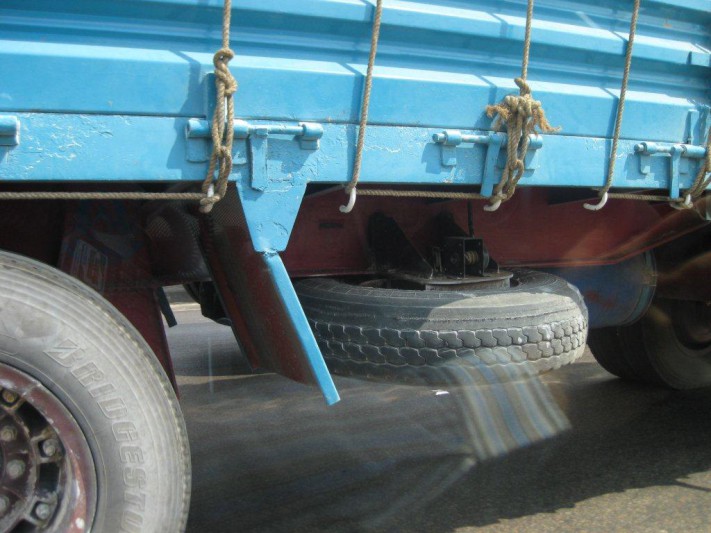
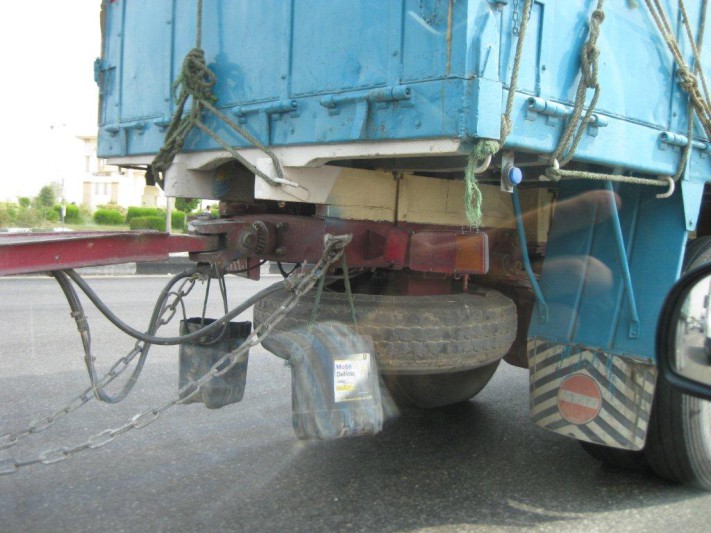
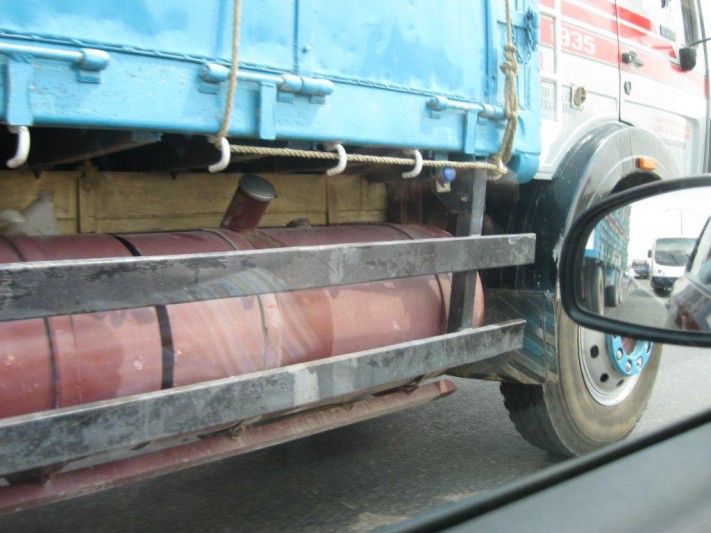
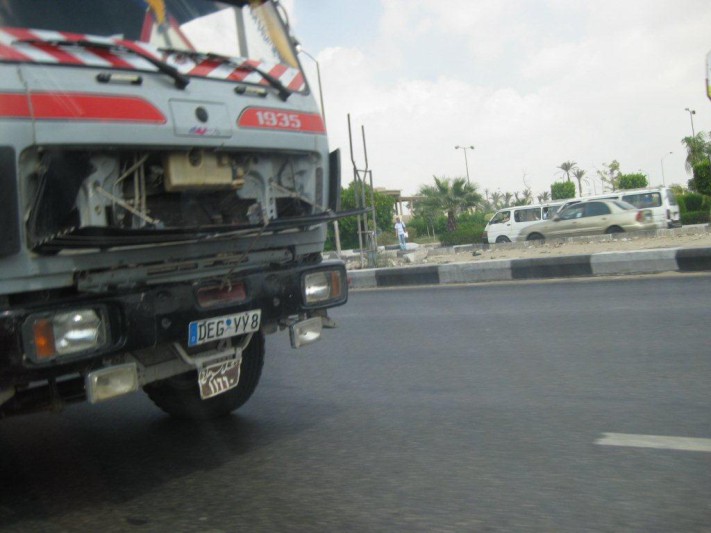
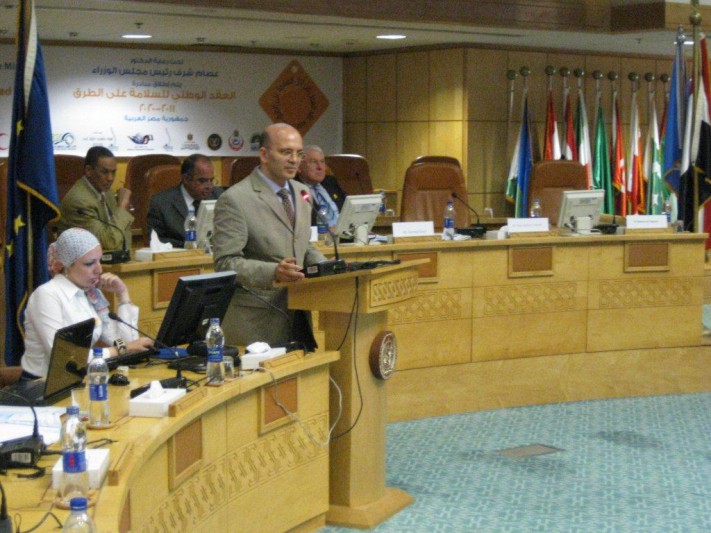
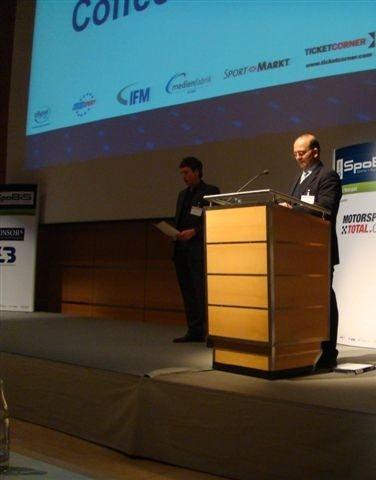
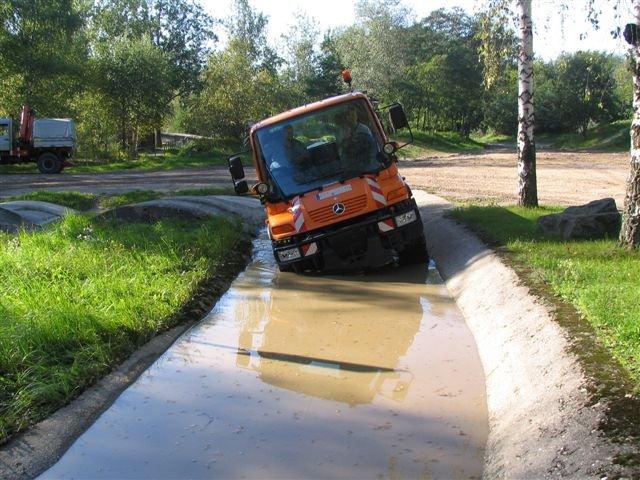
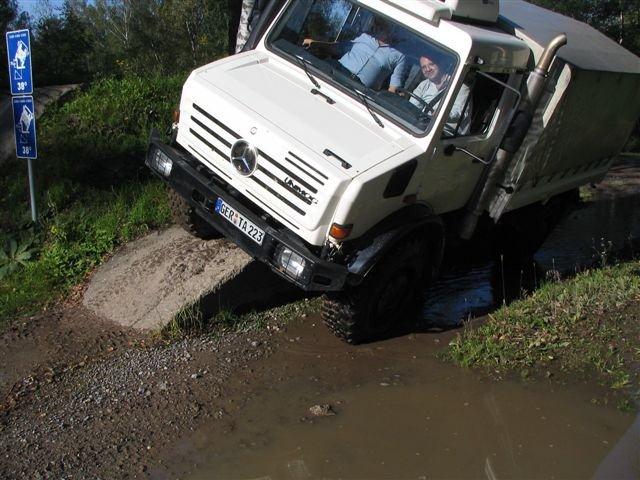
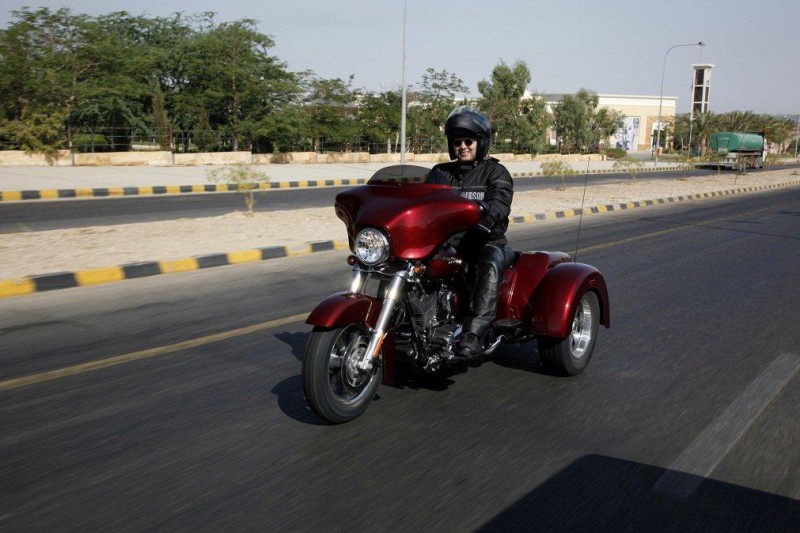
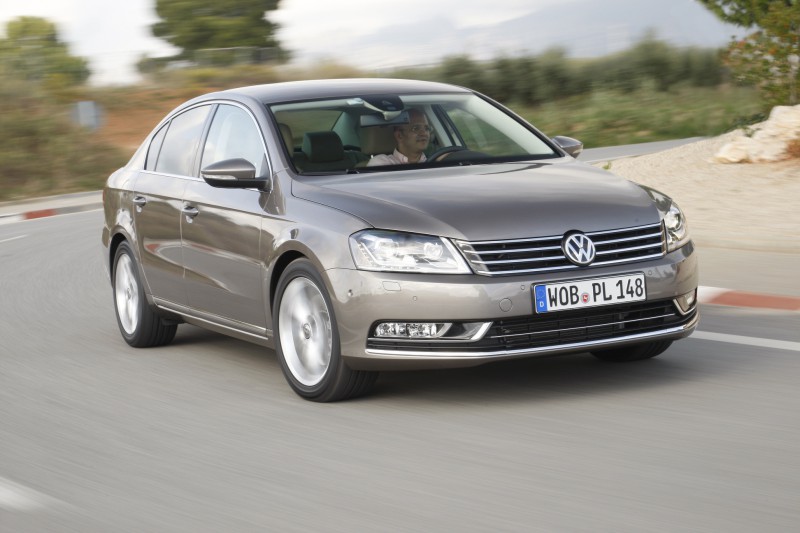
 FIA OFFICIAL STATEMENT FOLLOWING THE 2017 AZERBAIJAN F1 ...
FIA OFFICIAL STATEMENT FOLLOWING THE 2017 AZERBAIJAN F1 ... Formula E 2017 season: Renault e.dams win opening race ...
Formula E 2017 season: Renault e.dams win opening race ... Day 7 of 4th United Nations Global Road Safety Week - ...
Day 7 of 4th United Nations Global Road Safety Week - ... Day 6 of 4th United Nations Global Road Safety Week - ...
Day 6 of 4th United Nations Global Road Safety Week - ... Day 5 of 4th United Nations Global Road Safety Week - ...
Day 5 of 4th United Nations Global Road Safety Week - ... Day 4 of 4th United Nations Global Road Safety Week - ...
Day 4 of 4th United Nations Global Road Safety Week - ... Day 3 of 4th United Nations Global Road Safety Week - ...
Day 3 of 4th United Nations Global Road Safety Week - ... Day 2 of 4th United Nations Global Road Safety Week - ...
Day 2 of 4th United Nations Global Road Safety Week - ...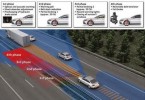 Day 1 of 4th United Nations Global Road Safety Week - ...
Day 1 of 4th United Nations Global Road Safety Week - ... Pirelli Egypt violates F1 TV & Radio broadcast rights ...
Pirelli Egypt violates F1 TV & Radio broadcast rights ...